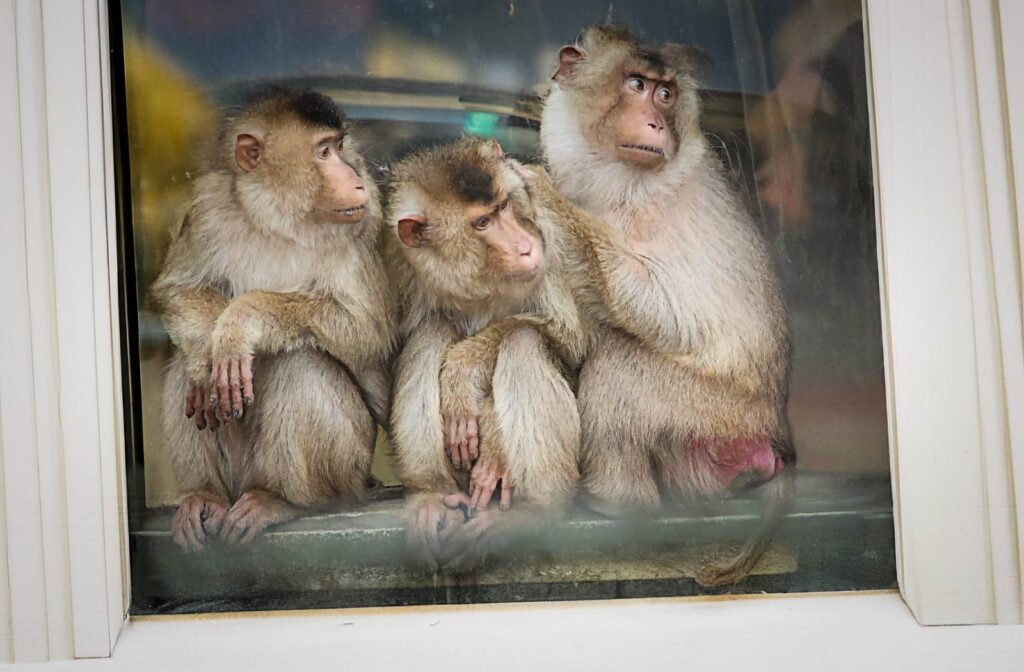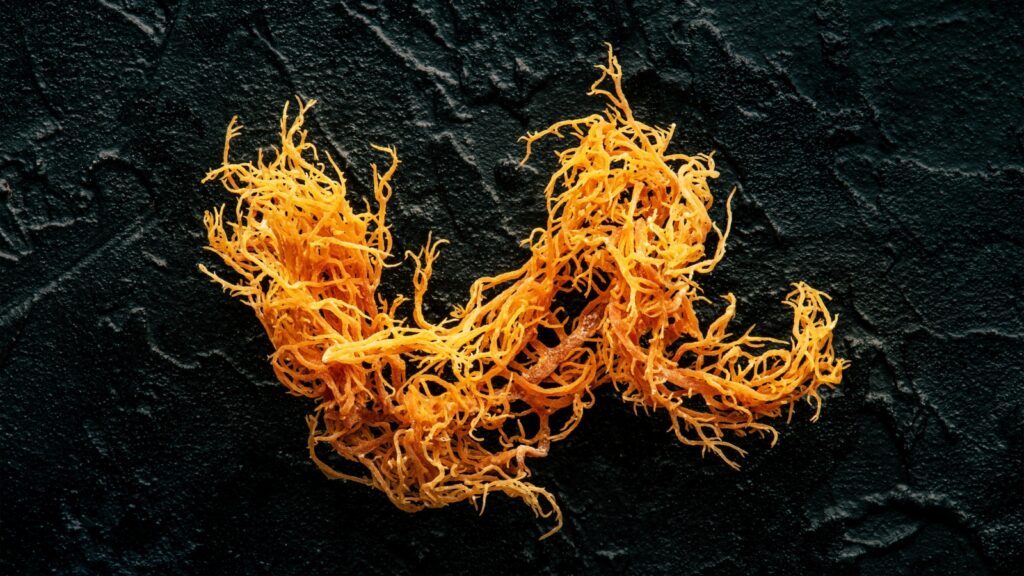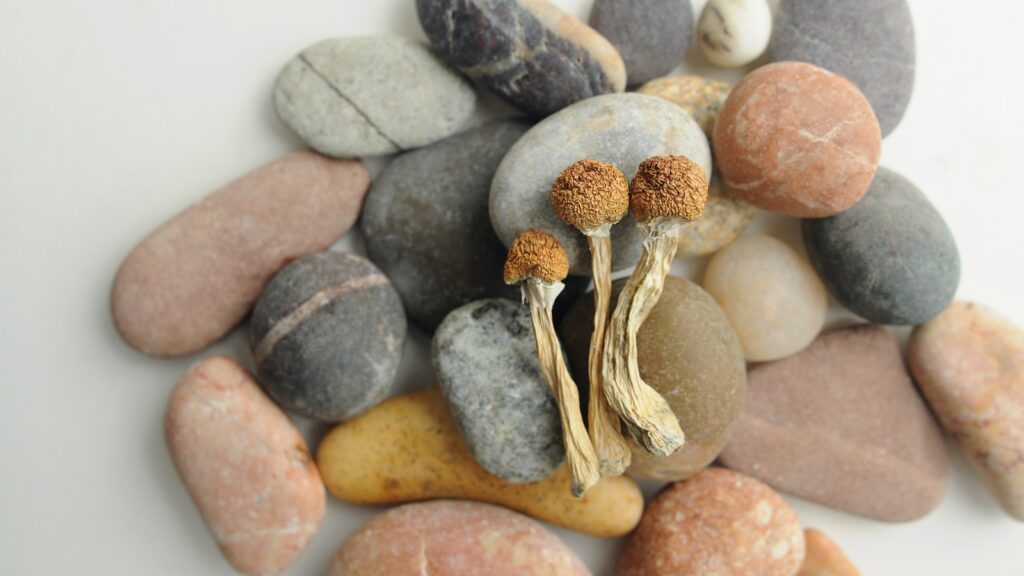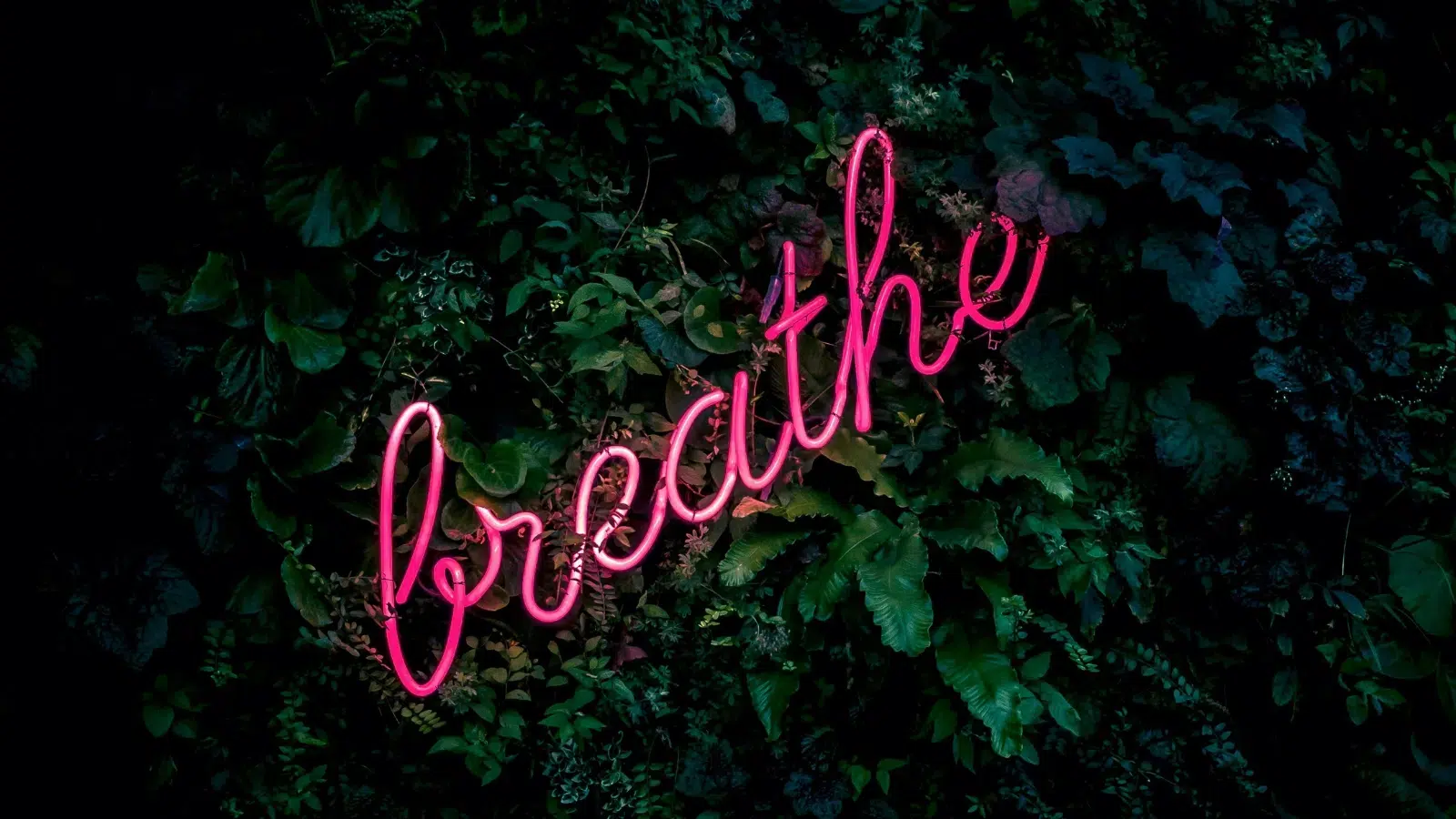The following is excerpted from Voices of Gnosticism, a selection of interviews with scholars of Gnosticism available from Bardic Press.
Elaine Pagels is author of The Gnostic Gospels, The Gnostic Paul: Gnostic Exegesis of the Pauline Letters, Adam, Eve and the Serpent, The Origin of Satan, and Beyond Belief: The Secret Gospel of Thomas. She is Harrington Spear Paine Foundation Professor of Religion at Princeton University.
The writings of Elaine Pagels are possibly the most substantial contribution to the advancement of modern Gnostic studies. Her seminal book, the award-winning bestseller The Gnostic Gospels, awoke a global interest in Gnosticism across the entire spectrum. The Gnostic Gospels, named one of the top 100 books of the twentieth century by the Modern Library, is widely considered an essential reference companion or at least primer to any involvement with the Nag Hammadi library. Beyond Belief, another very popular work, is regarded as one of the most affecting and sagacious efforts concerning the Gospel of Thomas (as well as the esoteric frequencies of the Gospel of John). And in between, Pagels’ other publications have extracted early, alternative Christianity out of the halls of academia and into mainstream awareness.
Ironically, our interview on Gnosticism was not about Gnosticism, or actually could have never been about Gnosticism, by default. Like Karen King, Michael Williams, Ismo Dunderberg and other scholars, Pagels has evolved into a doubting Thomas when it comes to accepting there was ever an ancient, religious movement known as Gnosticism. Unlike Marvin Meyer and Birger Pearson, she views these terms as needlessly problematic, at best, and ultimately intellectually constraining at worst. Pagels stressed this issue throughout much of our discussion for the basic reason the terms “Gnosticism” and “Gnostic” hijack an individual’s ability to fully retrieve the bounty found in the formative stages of Christianity. In essence, these terms are a sort of light pollution that has dazzled scholarly and religious minds but obfuscated an almost endless constellation of elemental Christian sects, each emanating from the same theological Big Bang but with their own unique and educational illumination.
Pagels perhaps went further than other academics in stating that even accepting Gnostic subdivisions such as Valentinianism and Sethianism was potentially falling into the mental quicksand of leaning too much on expedient but generalizing labels. Doing this inevitably creates a myopic projection into the Nag Hammadi library itself, conceivably aborting the possibility of taking accurate snapshots of youthful Christianity. Furthermore, within these accepted Gnostic categories, there exist so many contradictions in history, dogma and even praxis that it makes them all but cumbersome. Pagels believes the most sapient approach is to discard all conventional Gnostic groupings and place them under the Christianity rubric. Without these constraints, apocryphal and canonical texts, the Church Father writings, and historical evidence are beheld together in a more harmonious manner that can induce a deeper midwifing of the tenets of Jesus Christ.
Although as erudite as any scholar today, perhaps it is Pagels’ wisdom to keep matters simple when necessary that has made her the pre-eminent popularizer of ancient heresies. Although “Gnosticism” and “Gnostic” may be obstructive, Gnosis itself is far from it. Like Pagels stated in our interview, humanity’s reacquaintance with its “image of God” or “Divine Spark” is a critical and uplifting kernel motif that all of Christendom shares, past and present. After that, other layers of doctrine fall into place almost effortlessly (or at least Pagels has made them seem effortless). Certainly worth mentioning is her almost childlike, humble wonder of a subject she has earnestly pursued for generations, as revealed by the mere fact Pagels was just as interested before and during the interview in my own perspectives on Gnosticism as she was in sharing her ideas.
Even when it came to the Gospel of Judas, Pagels once more had an intelligible yet judicious view of the Gnostic Judas. Instead of seeing Judas as a delegate of the despotic demiurge, as April DeConick posited, or an astral pontiff of the eternal realm, as Marvin Meyer proposed, Pagels placed him in the sensible middle, beyond extremes. Judas Iscariot in the Gospel of Judas essentially symbolizes humanity in general — constrained by fate yet endowed with certain transcendental choices, caught in a continual see-saw of rejecting and accepting the providence of the divine, able to fully accept or completely ignore the message of salvation from the living Christ, and simultaneously a flawed hero and enlightened villain in creation’s grand but rickety stage. The Gnostic Judas is each one of us, and Pagels’ unadorned yet astute observation opens this Sethian text to greater lessons, whether historical or inspirational.
Although her legacy was cemented decades ago, Pagels, as she mentioned, will continue to reward both the scholarly and religious provinces with further insights on the wonders of a small yet labyrinthine faith that became history’s dominant religion. Whether “Gnosticism” or “Gnostic” remain in culture’s lexicon seems to be of little concern to her in the end. What matters are those countless, individual stars of the constellation called Christianity representing the assorted theologies the primordial followers of Jesus of Nazareth left behind for civilization’s edification.
Miguel Conner: Professor Pagels, you’re considered one of the pioneers of the so-called Gnostic studies, beginning with your ground-breaking book The Gnostic Gospels. How did you get into the study of heretical Christianity and what has been the most rewarding thing about it?
Elaine Pagels: Well, those are great questions. First of all, I didn’t think of getting into the study of heretical Christianity — I thought of getting into the study of Christianity. I went to do that in graduate school, and I was absolutely astonished to find out that my professors had file cabinets full of gospels I’d never heard of. So I was looking for the earliest we could find about Jesus and what he really taught; and what I discovered at Harvard was that all these secret gospels had been discovered, and they’re early — we don’t know how early but certainly first, second, third century. And they were completely changing the field. It’s like suddenly we could see the other side of the moon. So I found that very exciting, it made the study of the beginning of Christianity a lot more dense, specific, complicated and interesting.
When I talk to scholars they always say, well, it seems like we’ve only just begun every time they put out a book or write a paper.
Well, personally that’s true because when people study the beginning of Christianity they’re really looking for the real thing — that’s what I was looking for. So there are very strong presuppositions that we bring with us. You said “so-called Gnostic Christianity.” That’s a good qualification because what do we mean by that? What do we think that means? I was told when I first read, say, the Gospel of Thomas that it was a Gnostic text. The people who said that knew what they meant. They said, well, it’s a Gnostic text, that means it’s got to be dualistic, it’s got to have philosophical speculation and weird mythology and a very dismal negative view of the world. And when people started to read it and they didn’t find philosophical speculation or bizarre mythology or dismally negative views of the world, they said, well, that shows us that Gnostics are sneaky. They don’t tell you what they mean. But they just read all of that into it. And if you read lots of articles, in fact you can read text books that are the most respected in the field, which I could name, but I’d better not, which say that you can’t understand the Gospel of Thomas if you don’t understand that it has weird mythology and bizarre stuff that isn’t in there, but you’ve got to know this before you can read it. I said to the person who wrote that, well, why don’t you just read it? And he said, well it doesn’t make any sense. And I said, well, what you’re saying doesn’t make any sense. So we have a very different understanding of that.
So they’re basically saying you have to have Gnosis before you understand the Gnostic gospels?
Well, they’re saying you have to understand the Gnostic myth. Now, that so-called Gnostic myth was, in a way, constructed by Hans Jonas out of his book The Gnostic Religion. It’s a brilliant book. I’m sure you’ve read it. I read it. It inspired me. It was wonderful. But you don’t always find that stuff in these texts. But people often find what they’re looking for. So what exactly is “Gnostic” is a real open question. What do we mean by that?
I’m sure that it must have been a meme that almost couldn’t be stopped. Because the Nag Hammadi library is out there, and suddenly you’re going, “Oh my God, this is the Gospel of Truth that Irenaeus quoted. This is the Secret Book of John that Irenaeus quoted. So therefore the whole thing is monolithic.”
Well, what that tells you is it’s second century. In 2005 somebody called me out of the blue and said, “I have a text I’d like you to edit.” “What’s that?” I asked. He said, “It’s the Gospel of Judas.” And I thought, “Hah, how does he know that there really was a Gospel of Judas?” Unless you read second-century weird texts like I do, you would never have a clue that there’d be a Gospel of Judas. In fact, I thought it might be Irenaeus’ irony to talk about that, because we never saw anything close to it, until it was discovered in 2006. But what you know then is that this wasn’t written in the eighteenth century, it was actually written early in the Christian movement.
Right now there’s a discussion on the relevance and expediency of the words “Gnostic” and “Gnosticism.” You have the brilliant argument in the Williams/King paradigm that states they should be discarded. On the other hand you have people like Marvin Meyer or Birger Pearson that believe that these terms are still useful pointers. Where exactly do you stand on this, Professor Pagels?
I guess that’s an interesting point, and it’s not an easy one. I mostly tend to agree with Michael Williams and Karen King that the term isn’t too useful because it brings with it associations that people then project onto whatever they’re reading. So I guess I prefer to put the labels aside, and say, “What are we talking about?” Because in some cases, the Gospel of Thomas particularly, it doesn’t have the characteristics Hans Jonas identified. It is, I think, a mystical text, and probably contains some very early sayings of Jesus.
And, on a side note, what is your dating of the Gospel of Thomas?
Well, Miguel, I just do a pretty conventional one. I was told initially that it was dated to 140 — well, it’s got to be heretical, so obviously it’s a late text, a generation later than anything else we have. Then other people said, well, you know, maybe this is an early version of Jesus traditions. And my teacher, Helmut Koester, suggested it was written in the year 50, which puts it 20 years earlier than anything in the New Testament. But I think that’s extreme. I think it’s probably about 90 or 100. We have fragments of it that come from the early second century, as we do of the Gospel of John and Matthew. So I think it’s probably early, but there’s no reason to put it that early. They wanted to say, “this is the original teachings of Jesus,” which is a tempting idea but you can’t prove it.
On the other hand you have also the writings of Paul that are circulating, and it seems that the Thomasine community had no idea about them.
Yeah, well there’s no evidence that they have any knowledge of Paul. That’s an interesting point.
So, would it be safe to say that under the Gnostic umbrella we can put the Valentinians, the Sethians and perhaps later on the Manichaeans?
I would think so, I would think so, but I’ve come to the conclusion that what we call Gnostic is a wide range of sources. In the collection that was found at Nag Hammadi you’ve got something like the Discourse on the Eighth and the Ninth, which is a Hermetic text. It’s a meditation text, I’d say it’s a mystical text. You have Allogenes, which is another meditation text. It’s fascinating. It looks like it’s influenced by Buddhism. So would you call that Gnostic? I don’t know. It depends what you’re calling Gnostic.
Maybe it’s like John Turner says, Sethians who became very Neoplatonized and got away from Christianity. Like you say, it’s very hard to pinpoint, except for the real hardcore ones, like the Secret Book of John.
Yeah, I mean, do you have a definition of Gnostic? What definition do you use?
Well, I think we touched upon some of them. Going back again to Hans Jonas, obviously you have the myth of the false God, but that could put you into Marcionism, the false world, the myth of Sophia, or a fallen divine principle, the divine seed that lies within that can be awoken by an intermediary, world hating — you did mention that one, but that one is of course debatable. Am I missing something?
That’s the list you would use?
That would be close to a list I would use, yes.
Mainly people have developed those kinds of characteristics from, as you say, the Apocryphon of John. And it fits pretty well there. It doesn’t fit a lot of other texts, and I just think that under that umbrella we have put a wide range of perspectives.
But, let’s say, Valentinus writing the Gospel of Truth, as Einar Thomassen says, not every time he sat down to write a gospel he was going to throw in all the cosmology and cosmogony and theogony.
Yes, you see, that’s because Einar Thomassen assumes that underneath the Gospel of Truth there is all that stuff. Maybe there is. Maybe Valentinus did have that kind of mythology, but if you read what we have from him, which is, as you know, very little, this beautiful little poem Summer Harvest. It’s a beautiful poem, and I don’t see any hint of that in there. Some people do, though. You can read it into it, but I don’t know if Valentinus knew all that stuff. I love the Valentinian material. I work on those most because it has a view of the world that is like Princeton today, which is just perfectly glorious-the sun coming through the leaves, the most brilliant colors. As the Gospel of Thomas said, the kingdom of God is inside you and outside you. And here you can see the beauty of it. It just happens to be one of those fabulous days here. So the Valentinians have that vision of the world and the divine energy that pervades it that I find also in the Gospel of Thomas. And I do find that somewhat different from the Sethian view.
And another point that I might have missed is I would classify — and a lot of scholars would as well — would classify Gnosticism as dualist. Not in the Zoroastrian sense of two Gods opposing each other like with the Manichaeans or Cathars, but dualist in the sense of the separation of spirit and matter. Where do you stand on this?
Well, that’s interesting. That’s an interesting point. I just find it really hard to generalize, because as I read the Gospel of John, it’s the same kind of thing. I mean, the Gospel of John talks about the light shining in the darkness of the world, a world lost in sin and darkness, and the presence of God isn’t visible in the world except when the Logos shines into it. Paul sometimes talks that way, too. So I think that certainly a strong distinction between spirit and flesh is present in a lot of Christian literature.
Yeah, but of course, the Gospel of John and the Pauline letters were definitely something that the Valentinians were definitely very fond of.
Yes, they were. They loved that stuff. There’s no reason not to think, as I would guess, that Valentinus was taught by a student of Paul, and then he felt he was a kind of disciple of Paul. Not Thomas. As you say, that tradition doesn’t show any knowledge of Paul, but Valentinus seems to be aware of that tradition.
And when somebody comes up to you, a student or another teacher, and says, “Well, Professor Pagels, does the pleroma or the All encompass matter and spirit? Or is the pleroma distinct from the kenoma?” Or is it like Ismo Dundenberg says, that’s almost impossible to answer because in Valentinianism there’s always different schools disagreeing with each other.
Well, I think that he has a good point there. I would tend to think of the pleroma in the way that Origen talks about the divine fullness of being, as quite different from the material world. That’s the usual understanding of it. I think Origen sees it that way too.
What about the notion that Gnosticism or what we call the Gnostics, could have been a pre-Christian Gnosticism? Or do you see Gnosticism as definitely coming out of the Christian matrix?
Good question. I thought that Edwin Yamauchi’s book was really clear, that there’s no evidence for pre-Christian Gnosticism. Before that, in the nineteenth century, people were treating it as having Persian or Zoroastrian or other influences-there’s a lot of different cultural influences in there in that mix, but I don’t see any evidence for what the fathers of the Christian churches called Gnosticism before the second century. There were influences, sure, but in a way I think that develops out of their meditation on and reflection on the teachings of Jesus. That’s what Ptolemy says. In the Letter to Ptolemy he says it’s all about the words of the savior, also about Genesis.
And, to be fair, in those days there was such a stew of ideas that it would be impossible to have any religion coming out of a vacuum.
Absolutely. Especially a religion as complex and widely dispersed as the early Christian movement. You see the images of Horus and Isis in the mother and the child, you see the images of the Great Mother in the pictures of the Virgin Mary that comes out of Asia Minor, what is now Turkey. And of course a great deal of influence from the Jewish bible-that’s the major influence. And Greek Gods and stories about virgin birth, and so forth. So it’s a huge cultural synthesis, what we call Christianity anyway. And Gnosticism too.
Yes, the evidence is still pretty sparse. No silver bullets or Rosetta stones yet.
No, that’s right. We might find some.
Egypt will give us more presents, perhaps.
And how did this fascinate you? How did you get so intrigued by this material?
It was honestly one of those “don’t touch it” things. I went to a Catholic college, St. Thomas in Houston, and we were taught by Basilian priests; one of the speeches we got from the priests in every class, whether it was Old Testament or New Testament classes, had to do with the Gnostics, for about five minutes at the beginning of the semester. They’re heretics, you know. So of course, that made me interested, but then life went on and I remained a Catholic but kind of shopped around for religions. But the Gnostics always stayed in the back of my mind and your book The Gnostic Gospels was actually the first one I ever read and my response was “Wow!” like you; there’s so much to Christianity that we don’t know, this rich tradition that goes on almost forever.
There is, and there’s a lot of dissidents that we never really knew about. A lot of arguments and discussions in the early Christian movement get completely wiped out in the history, and they become harmonised, and everybody’s happy and they all agree each other. But, for example, when you get the Gospel of Judas discovered, one of the things it’s opened up for me is what Tertullian writes in the second century-an African writer, from North Africa-and he says, well, some people think martyrdom isn’t a good thing. They think it’s cruel that God wants us to die. Jesus said, ‘If they pursue you in one town, flee to the next’. I mean, that’s in the gospel, so why should people die as martyrs if they can avoid it? And other people say, well, Jesus died for your sins so that you wouldn’t have to die. I mean, God doesn’t want you to die. Tertullian says, no, martyrdom’s good for you. It’s like exercise. A good bracing martyrdom in the arena makes you strong. And besides, God loves it and nothing is more beautiful to God than the death of his saints. And you think, “What kind of God would find the death of his saints a beautiful thing?” So what you find out is, some people were saying, “No, it’s not at all what God wants. It’s completely wrong.” And if it weren’t for the Gospel of Judas and a couple of other writings from Nag Hammadi, you wouldn’t have any evidence of texts that express a very different point of view on martyrdom.
Yeah, the Apocalypse of Peter is another one that is very anti-martyrdom. Anti-many Christian sects, it seems.
Exactly, and the Testimony of Truth is the same, and critical of the leaders and the bishops that are pushing people into martyrdom. So they did really knock out the dissidents pretty much, and burn their literature.
In popular culture there’s this romanticized vision of the Catholic Church hunting down Gnostics in the second and third centuries and destroying them. But we really don’t have any evidence. It’s more like they probably just faded away.
Well nothing like that. In fact I assumed when I first wrote that Irenaeus had said they were bad, and so they did just kind of fade away, but the fact is: where did we find these texts? We found them in Egypt in the fourth century-fourth century!-being read, we now think, in a monastery. So if they’re being read in a monastery in the fourth century, they didn’t fade away. People were reading this stuff intensely and with great interest, and they were only stamped out with huge difficulty by Athanasius at the end of the fourth century when he told them to get rid of these other books in his letter of 367. But Christians were reading this material intensely as devotional literature. We can now see that.
Going back to the Gospel of Judas, Professor Pagels, where do you stand on the interpretation of Judas? We have April DeConick’s Thirteenth Apostle that sees Judas as a sort of incarnation of the thirteenth aeon or stellar lord; and then you have the softer interpretation that sees Judas as a priestly hero, or as John Turner calls him, “a fool of fate.” Where do you stand on Judas?
Well, I think that April DeConick and John Turner’s view that Judas is a completely benighted sort of devil figure is a huge exaggeration. The text is more complicated than that. What it suggests to me-and I’ve written about it, actually-is that Judas is the representative of the human race, which cannot be saved in its natural state, the state in which we’re born as children of Adam. Just as the Gospel of John says, you must be born again. If you’re not born again, you just die. If you’re spiritually born then you become a member of the heavenly race. It’s just like any Christian baptism. So the Gospel of Judas pictures Judas both as a representative of you the disciple-okay, you’re completely lost and hopeless. But if you’re baptized you become a member of the heavenly race. But what you get is scholars saying, either he’s the devil, which is hopeless and worthless and completely garbage, or he’s the best disciple of all. How do you get such contrary views? It’s because, I think, the Gospel of Judas is saying, before baptism, you, or any disciple, is hopeless and worthless, and bound to die and sinful. And after baptism you become a member of the divine race, and you become blessed. But it’s their kind of baptism, and it’s probably not the same.
How the Sethians viewed baptism, and how the Sethians saw apostolic Christianity and the old Jewish temple culture?
Yeah, exactly.
Here’s a question that I’m sure is very hard to answer. I’ve asked a few scholars without really getting an answer. We have the Valentinians and the Sethians. They seem to be very parallel, very similar. They have their differences. The Valentinians are more orthodox, they seem to be softer, whereas the Sethians are, you could say, the bad boys of that movement. Do you see them as having a common ancestor? A common theological ancestor? Or do you see them as cross breeding at some point? Or do we have any evidence?
Oh, that’s an interesting question. I don’t know. I kind of suspect that they’re reading the same texts, you know. They’re all reading the Hebrew Bible, they’re reading Genesis. The Sethians may not even be dealing with Jesus in the same way, though. I just don’t know. That’s a good question.
I’ve asked that question a lot. Maybe someone needs to write a book now. Do you see the Sethians as really like rebels who decided that they had had enough of the Jewish dispensation? Or as some scholars have said, they really saw themselves as elite or very kindly bodhisattvas who want to show people, no, this is a better way?
Well, you know, I guess I’ll leave that to the people who really work on those texts. I don’t work on them very much, so I don’t feel I’m the best person to speak about that.
And, Professor Pagels, could you give us maybe two or three stances that you’ve either made a 180 degree turn on, or perhaps highly modified concerning the so-called Gnostics since you started your research on them?
First of all, I just see a whole lot more variety in the texts than we originally assumed. Second, I’m not sure that I’d call them Gnostic. I’m not sure that we know what that means except for meaning what I designed it as meaning as having to do with a conviction about the divine that is within, and I think that’s consistent with a lot of these texts. So I guess I’ve really shifted on whether I think they’re Gnostic in some definable sense. Whatever that means, it’s gotten a lot more interesting and a lot more complicated.
But you still hold that there’s something called Gnosis as you write about that insight into yourself and into the divine?
Yes, of course. And the view that the divine light is hidden within us and we can find it, we don’t have to go through a church — that I think is common to these texts. I love that about them.
It seems that the Gnostics could be pretty dogmatic and structured and sacramental, at least some of them. The evidence points to some of them.
Some of them could. I’m not necessarily opposed to ritual and sacraments. I’m a viewer, but I don’t think it’s necessary. Actually, what Irenaeus says is some are using a lot of rituals, and others are saying it isn’t necessary to do that. And I think those two points are consistent with each other, or could be.
A lot of it is probably apocryphal, but some sources on the web say you were the source of saying that the Gnostics were more egalitarian or perhaps more feminist than other Christians. Do you still hold that view?
Well, there’s evidence that those groups that Irenaeus didn’t like were a lot more inclusive to women than others.
That’s the reading of the church fathers?
Yeah, of course, because they clamped down.
The old question is how much you can trust the church fathers. Don’t you have to put on a psychologist’s hat to understand them?
Well, you can probably understand anyone better with a psychologist’s hat.
That’s very true! Lastly, do you see anything exciting on the horizon for Gnostic studies? Anything coming up the well?
I’m having fun. I’m writing a book about the Book of Revelation and about Gnostic texts that are, if you like, books of revelation, and really wonderful ones-better than the one in the New Testament, I think.
Well, we certainly look forward to it. You don’t put books out very often, but when you do, wow, the ground shakes.
Well, thank you so much. It takes about ten years.
Wow! You’re almost as bad as Tolkien!
[Laughs] Yeah, well if I could end up like he did that would be great!
You already have a legacy, Professor Pagels, so don’t worry about it.
Well, that’s kind of you, thank you. I really enjoyed it, and I appreciate how knowledgeable you are.
Thank you, and you have yourself a good day.
Thank you, and you too.
Teaser image by Chris, courtesy of Creative Commons license.









